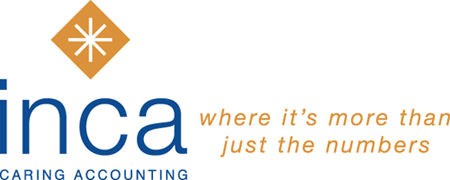In his Autumn Statement, the Chancellor of the Exchequer Philip Hammond announced the government would be introducing changes to the Flat Rate VAT Scheme (FRS)
These changes will come into effect in April this year, and have significant implications for businesses that use FRS, but spend little on goods and raw materials – such as service oriented businesses.
FRS was introduced to provide simplified VAT accounting for small businesses, and help ease their transition toward the normal VAT scheme.

Under FRS, registered businesses – even those with turnover below the normal VAT threshold can charge the full rate of 20% VAT on their sales, paying back HMRC a fixed percentage. This percentage figure varies depending on the business sector, and is based on the purchases HMRC would expect a typical business to make.
In its current form, FRS is particularly attractive to businesses that don’t buy in materials and don’t outsource or sub contract work. The government is concerned some businesses are ‘aggressively abusing’ the scheme to pay less VAT than they should, and the new legislation is designed to prevent this.
From 1st April 2017, businesses using FRS or considering joining the scheme will need to check their status to determine if they are classified as a ‘limited cost trader’ – a new entity defined by HMRC.
Businesses which meet the criteria for a limited cost trader will be subject to a new FRS rate of 16.5% – negating any financial benefit they may have previously enjoyed.
So what is a Limited Cost Trader?
In their guidance notes, HMRC advises that a limited cost trader will be defined as one whose VAT inclusive expenditure on *goods is either:
-
Less than 2% of their VAT inclusive turnover in a prescribed accounting period
-
Greater than 2% of their VAT inclusive turnover but less than £1000 per annum if the prescribed accounting period is one year (if it is not one year, the figure is the relevant proportion of £1000)
*Goods must be used exclusively for the purpose of the business. Capital expenditure, food or drink for consumption by employees, vehicles, vehicle parts and fuel (except where the business is one that carries out transport services) are excluded.

That’s me – what do I need to do now?
If your business meets the HMRC definition of a limited cost trader, the new 16.5% flat rate will apply, with the result that any financial advantage you may have been enjoying up to now is likely to be mitigated.
Deciding what to do next will depend on whether your VAT turnover is above or below the threshold for compulsory registration (£83k p.a.). Every business will need to weigh up the pros and cons based on their own situation:
1. If your turnover is ABOVE the VAT threshold
You need to decide if you are going to remain on the flat rate scheme at the new rate, or register for normal VAT. Moving to normal VAT, your reporting will become slightly more complex – but an online accounts system will simplify the process, and with digital accounting just around the corner, this could be the nudge you need.
Moving to normal VAT will also mean you will be able to recover full VAT on all your eligible purchases, so even if you don’t buy in much by way of goods or services, you can reclaim VAT on general expenditure like telecoms, internet services and accounting fees.
2. If your turnover is BELOW the VAT threshold
You will need to decide if you are going to remain on FRS at the new rate of 16.5%, or convert to normal VAT reporting. You do, of course, have the additional option of de-registering from VAT altogether. Many businesses opted into the flat rate scheme primarily to help give them additional credibility with their customers, and if this includes you, you’re likely to want to remain in the scheme – even though there will be no financial benefit.

Let Inca calculate what’s best for your business!
If your business is currently on the FRS scheme – or if you are thinking of joining it, we recommend you seek professional advice now so that a plan can be put in place to effectively manage the transition.
With the new rules due to be implemented in a matter of weeks, you need to act quickly – call us now on 01235 868888 or 01865 821100.








